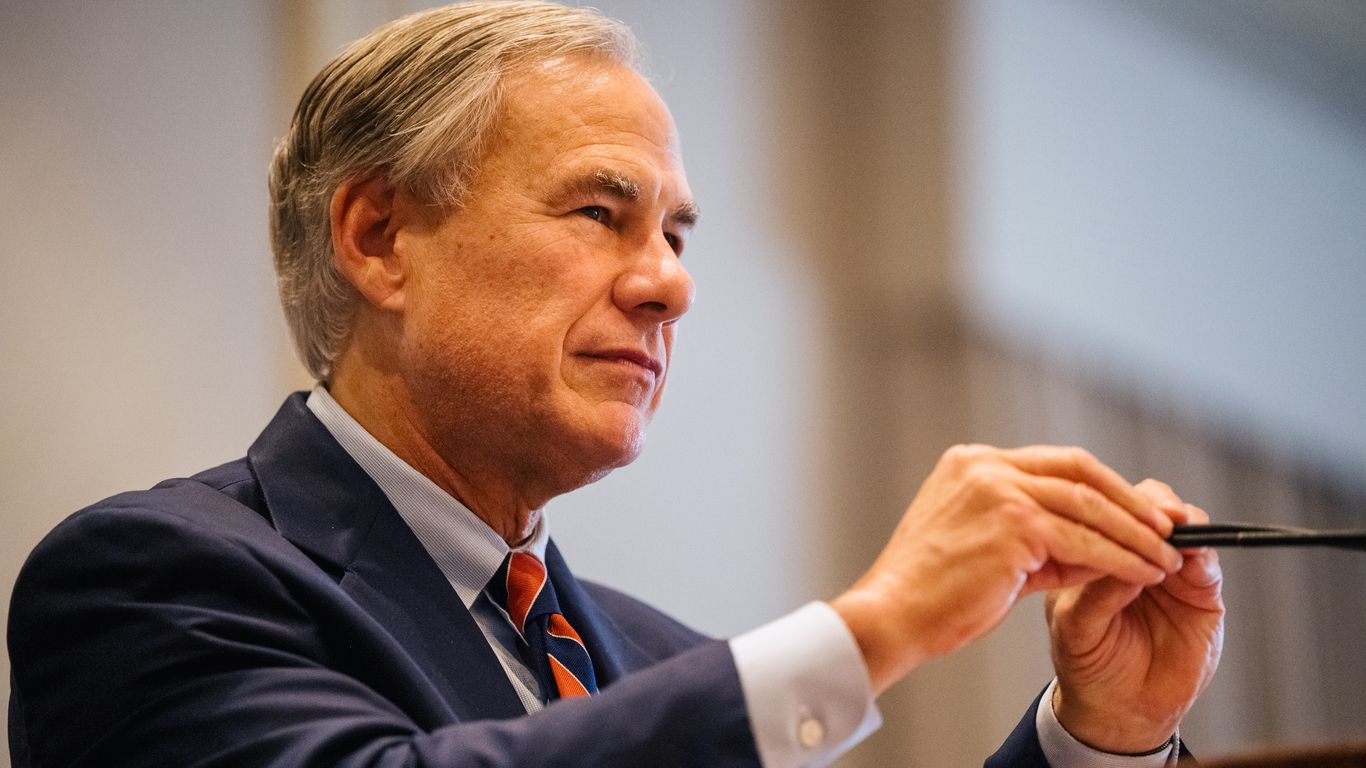
Texas’ restrictive abortion law has compelled women to travel out of state for abortions or to seek self-managed abortion medication, per new research out of the University of Texas.
The big picture: Even as in-state abortions have plummeted, the law, known as Senate Bill 8, has not reduced the need for abortion care in Texas.
- Instead, it has greatly reduced in-state access and forced thousands of pregnant Texans to undertake long-distance trips to reach abortion facilities outside of Texas or order medication by mail, per separate reports by UT researchers.
Catch up quick, via Axios’ Oriana Gonzalez: The Texas law, which took effect Sept. 1, prohibits nearly all abortions as soon as an embryonic heartbeat is detected, which can be as early as six weeks into a pregnancy and before many people know they are pregnant.
- The law does not have any exceptions for cases of rape or incest.
By the numbers: On average, nearly 1,400 Texas women each month between September and December 2021 sought abortions at 34 facilities in neighboring states, researchers at UT’s Texas Policy Evaluation Project found.
- That average is nearly equivalent to the total number of Texans who traveled out of state each year to those clinics between 2017 and 2019.
- Only 235 Texans were admitted for abortions in the 34 facilities in August 2021, the month before Texas’ abortion law took effect.
Of note: The data does not include pregnant Texans who traveled to other states or countries for the procedure — or to facilities in neighboring states, Oriana writes.
Other numbers: Newly released data shows that Planned Parenthood health centers in Texas’ surrounding states saw a nearly 800% increase in abortion patients from Texas between Sept. 1 and Dec. 31, 2021.
- Meanwhile in Texas, the number of clinic abortions performed in the state fell by approximately 60% in the first month after Senate Bill 8 was enacted.
What they found: The Texas Policy Evaluation Project researchers interviewed 65 Texas women about their experiences with out-of-state abortions.
- Participants often experienced delays — some built into state law, such as a mandatory ultrasounds and counseling visits — that made it impossible to access abortion care in-state within SB 8’s requirements, even if they found out they were pregnant shortly after missing a menstrual period.
What they’re staying: Women interviewed by the researchers referred to the law as “unfair,” “cruel” and “inhumane” because it did not give them the chance to obtain care in Texas.
Meanwhile: Another UT researcher found that demand for self-managed abortion care in the state surged.
- In the first week after the law went into effect, the number of average daily requests made to the Austria-based nonprofit Aid Access from people in Texas increased by 1,180% over the previous daily average, leaping to 137.7 requests per day, per research published in late February.
- After that initial spike, demand for the medication remained high in the three months after SB 8’s implementation. The nonprofit averaged 29.5 daily requests in October, November and December, a 174% increase from the previous daily average.
- “The need for abortion doesn’t magically go away,” Abigail Aiken, an associate professor of public affairs at UT’s LBJ School, told Axios. The data “offers us a glimpse into what may well happen if you severely restrict or outlaw abortion altogether.”
The bottom line: If the U.S. Supreme Court overturns Roe v. Wade, three of the states that border Texas have so-called trigger laws that would prohibit abortion.
- “Texans will find it increasingly difficult to overcome the distance and logistical hurdles to care,” the UT Policy Evaluation Project report concluded.
